Cats are known for their independent spirits, but even the most self-assured felines can experience stress and anxiety. Whether it's due to changes in their environment, loud noises, or even new pets, knowing how to help your cat feel secure is essential for their well-being. Here are some vet-approved strategies to calm your cat effectively.
Other Topics You Might Like
Helpful Products You Might Like
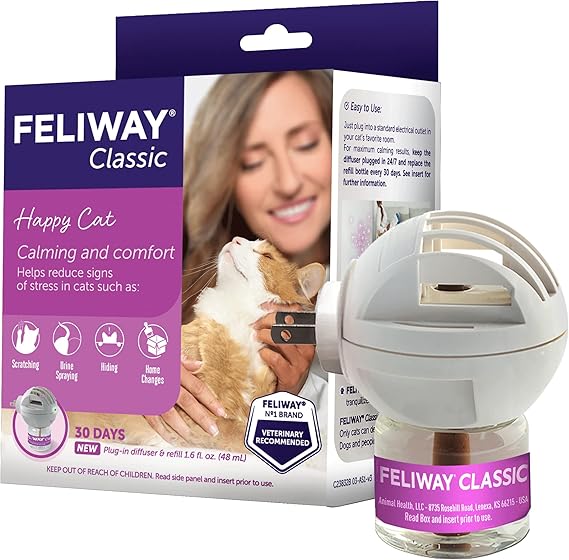
FELIWAY Classic Cat Calming Pheromone Diffuser
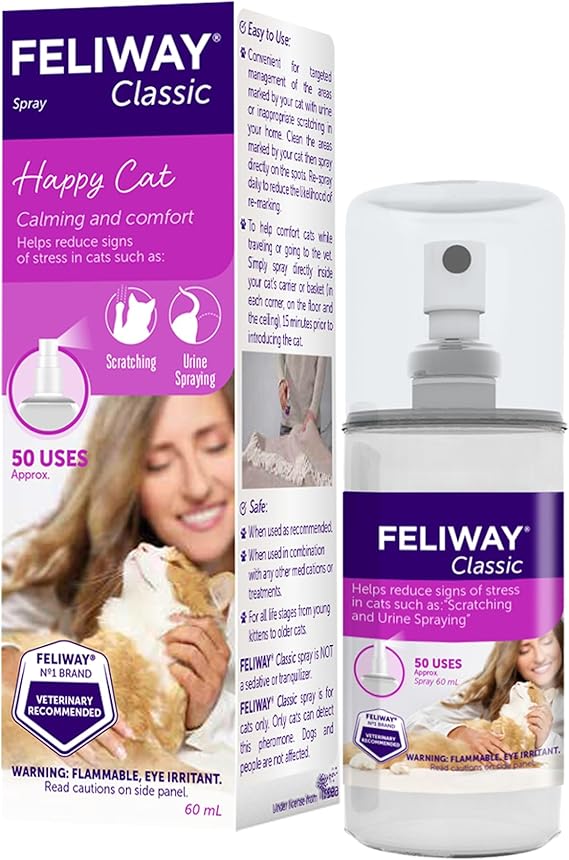
FELIWAY Classic Cat Calming Pheromone Spray
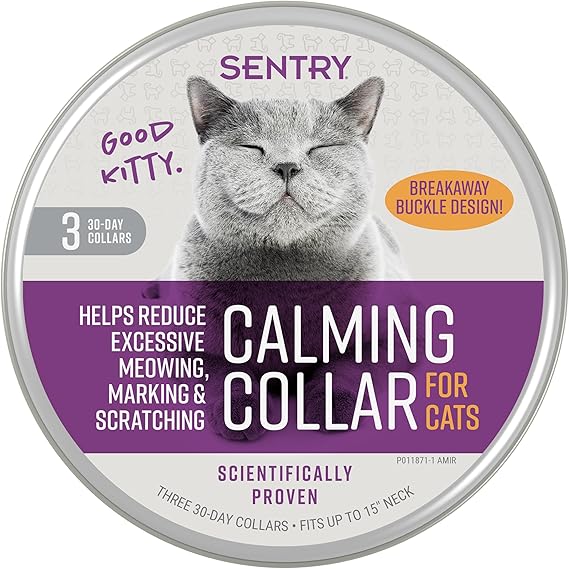
SENTRY PET Care Sentry Calming Collar for Cats
"(Paid Links)" 
Create a Safe Space
One of the best ways to help a stressed cat is to provide them with a safe, quiet space. This can be a cozy bed in a secluded corner of your home or a designated “cat room.” Make this area inviting with soft bedding and familiar toys. Cats often seek solitude when they feel overwhelmed, so ensuring they have a retreat can reduce their anxiety significantly.
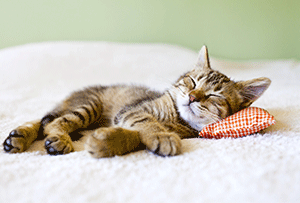
Use Calming Products
There are many products on the market designed to calm anxious cats. Feliway, a synthetic pheromone diffuser, mimics the natural pheromones that cats release when they feel safe and comfortable. Sprays and diffusers can help create a calming environment. Other options include calming collars, which release pheromones, and herbal remedies like catnip or valerian root, both of which can have a soothing effect.
Maintain a Routine
Cats thrive on routine, and sudden changes can lead to stress. Keeping a consistent schedule for feeding, playtime, and interactions can help your cat feel more secure. If you anticipate a disruption, such as a move or a new addition to the family, gradually introducing changes can help your cat adjust more comfortably.
Engage in Interactive Play
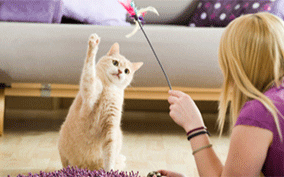
Regular playtime is crucial for a cat’s mental and physical well-being. Engaging them in interactive play not only provides exercise but also helps to relieve pent-up energy and stress. Use feather wands, laser pointers, or small toys to stimulate their hunting instincts. Regular play can distract them from stressful situations and provide an outlet for their energy.
Provide Environmental Enrichment
Cats need mental stimulation to stay happy and calm. Providing a variety of toys, scratching posts, and climbing structures can keep their minds engaged. Puzzle feeders that dispense treats can also provide both mental and physical activity, helping to reduce stress and boredom.
Consider Dietary Adjustments
Nutrition plays a significant role in your cat’s mood and stress levels. Consult your veterinarian about whether a calming diet or supplements could be beneficial. Certain diets formulated with ingredients like L-theanine and tryptophan can help promote relaxation in stressed cats.
Use Gentle Handling Techniques
When your cat is feeling anxious, how you handle them matters. Avoid forcing interactions, as this can increase their stress. Instead, approach your cat slowly and gently. Let them come to you when they’re ready. If they seek your affection, stroke them calmly and softly, focusing on areas like the cheeks and chin where many cats enjoy being petted.
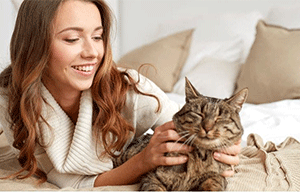
Consider Professional Help
If your cat's anxiety persists despite your best efforts, it may be time to consult a veterinarian or a feline behaviorist. They can assess your cat’s specific needs and recommend tailored strategies, which may include behavioral therapy or medication for more severe cases.
Conclusion
Caring for an anxious cat involves understanding their needs and providing a supportive environment. By creating safe spaces, using calming products, maintaining routines, engaging them in play, and ensuring proper nutrition, you can significantly help reduce your cat's stress levels. Remember, patience is key—each cat is unique, and what works for one may not work for another. With time and care, you can help your feline friend find their calm.
